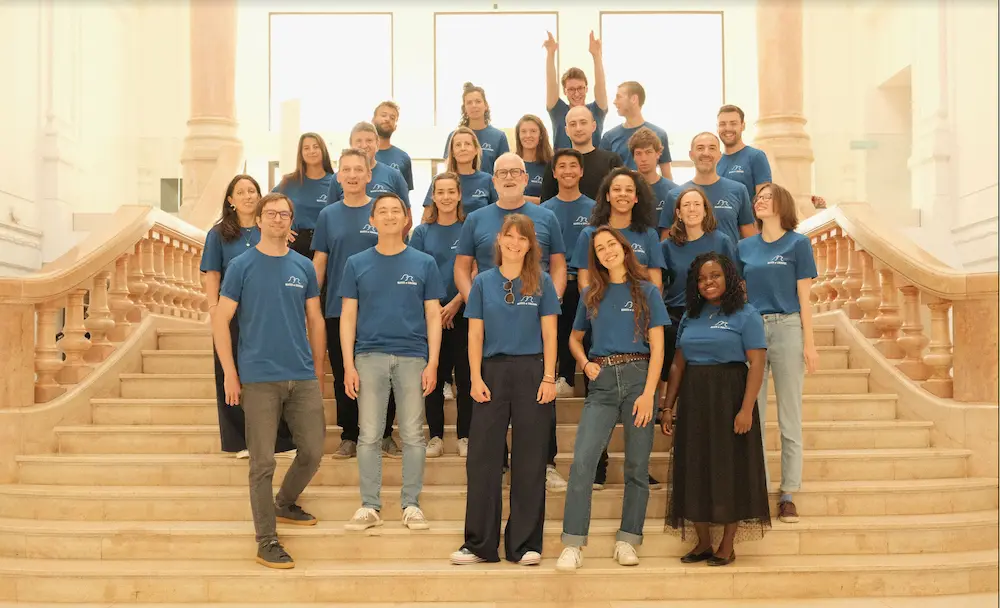· Circular & Regenerative Economy News around the Globe ·
This monthly selection of articles has been brought to you by the Circulab Community – a network of 100+ circular economy experts spread across 22+ territories.

Global News and Trends
WEF – Degrowth – what’s behind the economic theory and why does it matter right now?
A political and economic theory of degrowth is gaining traction as fears grow over climate change. The World Economic Forum looks into what this approach entails and the arguments of its opponents.
Euractiv – A Circular Economy to break the cycle of crisis
Open Society Foundations provide an outlook onto EU initiatives to shift towards new economic models in a context of resource scarcity and disrupted supply chains
SDG Knowledge Hub – G7 Agrees to Establish “Climate Club” Amid Energy Security Concerns
The Climate Club will seek to advance ambitious and transparent climate change mitigation policies towards climate neutrality, transform industries to accelerate decarbonization, and boost international ambition through partnerships and cooperation.
UNEP – At UN Ocean Conference, new governments commit to circular economy for plastics
Twenty-one new governments announced they will join the New Plastics Economy Global Commitment which brings together stakeholders across the plastics value chain to drive the transition towards a circular economy for plastic, where plastic never becomes waste.
Novethic – We have to stop our dependence on plastics (in French)
An infographic based on the latest OECD report demonstrates the urgency to cut back on the production of plastics.
Forbes – As Climate Change Threatens Mounting Urban Costs, Is Biomimicry The Way Forward?
The built environment is already responsible for up to 40% of global emissions (with cities responsible for 70% of such emissions), through heating and cooling, lighting, transportation and embodied carbon. Addressing this means thinking about cities, and how we live in them, in different ways. Putting the biomimicry approach in the centre could be one way forward.
Culturez-vous – How the culture can be more ecoresponsible? (in French)
3 examples of ecoresponsible initiatives in the culture sector

Europe, Middle East and Africa
European Council – Fit for 55 package: Council reaches general approaches relating to emissions reductions and their social impacts
The package will enable the European Union to reduce its net greenhouse gas emissions by at least 55% by 2030 compared to 1990 levels and to achieve climate neutrality in 2050. The Council also agreed to establish a Social Climate Fund to support vulnerable households, micro-enterprises and transport users to support the creation of an emissions trading system for the buildings and road transport sectors.
Novethic – A quarter of the new French parliament trained on ecology in three days (in French)
For the first time in France a collective of scientists, economists and ecology experts got together to speed-train the French politicians on climate issues, only a few days after they were elected for the new Parliament.
AFP – 84 business leaders call for an “organised” energy sobriety (in French)
The leaders, including the CEO of EDF, want to integrate the “circular economy, usage economy, relocation, regeneration of biodiversity” into the heart of corporate strategy.
APO – Rwanda to host 2022 World Circular Economy Forum in December, a first for Africa
The World Circular Economy Forum will, for the first time, take place on African soil in 2022, bringing together participants from around the world to absorb lessons from the continent and the wider global south toward building a more resilient and greener global economy. The Forum will be held from December 6-8, in Kigali, Rwanda.
Xinhua – East African Community unveils regional bio-economy strategy
The East African Community unveiled the regional bio-economy strategy aimed at making use of the region’s abundant natural resources and enabling the EAC member states to use underutilized agricultural waste materials to produce value-added products with applications in many sectors such as food, health, energy and industrial goods.
Al-Awsat – UAE Approves 22 Policies to Expedite Transition to Circular Economy
The Circular Economy Council approved the policies proposed by its subsidiary, the Circular Economy Policies Committee, that focus on accelerating the implementation of the circular economy model in four main sectors – manufacturing, food, infrastructure, and transport.
Novethic – One of the largest airports in the Netherlands limits its flights (in French)
In the Netherlands, the government has taken drastic measures at Amsterdam Airport Schiphol to limit environmental pollution and ensure the well-being of the surrounding population.

North America
La Terre – Launch of an edible insect chair (in French)
University of Laval created an academic chair in the production and processing of edible insects. In addition to offering a variety of training and conferences, the chair will develop solutions to combat food waste given that 58% of organic residues are lost during the production and supply of food in Canada.
House Committee on Energy & Commerce – Hearing on “No time to waste: Solutions for America’s broken recycling system”
The Subcommittee on Environment and Climate Change of the Committee on Energy and Commerce held a legislative hearing, available on replay on its website.
pv magazine – It takes more than recycling to establish a circular clean economy, says NREL
Designing renewable hardware to last longer and using fewer materials to construct it can work to bolster recycling efforts in building an effective circular economy for solar and battery technologies, according to NREL research.

Latin America
UNDP – How Indigenous Communities in Chile can Inspire Global Action on the Circular Economy
Local and Indigenous communities have deep-rooted ancestral and cultural knowledge when it comes to circularity and innovative local solutions. Including their voices, cultures and traditions meaningfully is vital to climate action, the protection of the environment and advancing the circular economy.
The Guardian – Latin American countries join reserves to create vast marine protected area
Panama, Ecuador, Colombia and Costa Rica committed to joining their marine reserves to form one interconnected area, creating one of the world’s richest pockets of ocean biodiversity.
AFP – A favela in Rio that works off the solar energy
Solar panels allow to drastically cut electricity expenses for the poor communities in Brazil in a context where energy prices have been soaring, but also redirect the saved money to social projects.

Asia Pacific
Courrier International – China is awash in medical waste (in French)
The very large quantity of PCR tests carried out as part of the “zero Covid” policy in China has produced a gigantic mass of medical waste. In Shanghai, between the beginning of March and the end of May, 65,800 tonnes of waste were produced. An environmental and economic burden for local authorities.
Business Times – What it’s like to try living green in China
China set a goal 2 years ago to reach peak emissions before 2030 and zero them out by 2060, and one of the 10 key missions of the government’s official roadmap to meet those targets is a “green lifestyle for all people”. In practice, though, it’s not easy for Chinese consumers to make informed choices.



